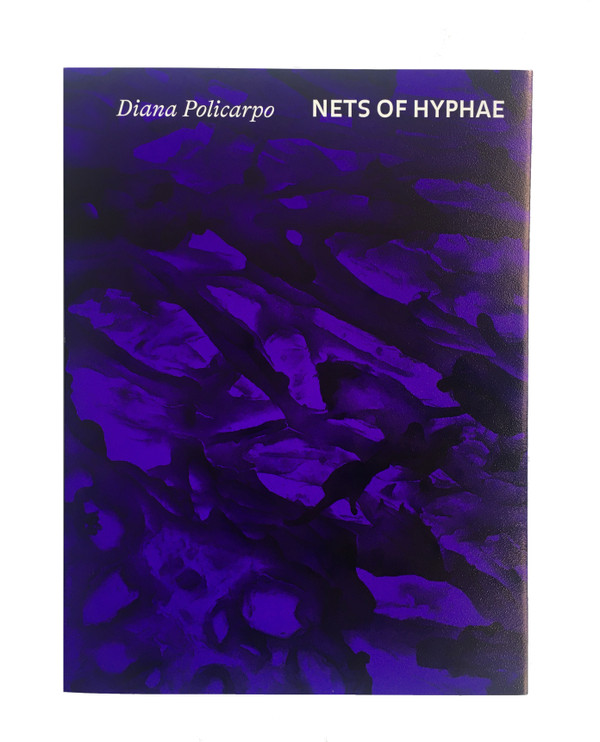
NETS OF HYPHAE — Diana Policarpo Book
Diana Policarpo
Nets of Hyphae
Diana Policarpo’s new work highlights feminist intersectional concerns and draws geographical connections between Norway, Portugal, and Spain, where a similar fungus species, the Claviceps purpurea is found. Also known as ergot, the parasite infects the ovaries of rye plants, creating purple protrusions. These knobs have been used traditionally by women for abortions and to initiate labor in childbirth. The mushroom is also the organic base from which LSD is synthesized. When consumed in larger doses, often unknowingly, for instance in bread, it caused long-lasting states of hallucination referred to today as medieval dancing plagues. And, allegedly, during the witch trials in Finnmark and other places, women and Sámi shamans were said to have visions of the devil after ingesting a purple substance—possibly the Claviceps, as Policarpo speculates.
The writers in the book discuss Policarpo’s research in the context of ancestral knowledge, the capitalization of health, women’s and LGBTQ+ rights, witchcraft, and alchemy from artistic, curatorial, and historical perspectives. Making connections across times, geographies, and scales, Nets of Hyphae humbly points to shared habitats and, in the words of the anthropologist Anna Tsing, to possibilities of earthly survival on a precarious planet.
Edited by Stefanie Hessler
Contributors:
Guilherme Blanc
Emmy Beber
Rune Blix Hagen
Stefanie Hessler
Margarida Mendes
Katrine Elise Pedersen
Design by João M. Machado
Co-published by Galeria Municipal do Porto, Kunsthall Trondheim and Mousse Publishing, and with support from the Arts Council Norway.
2021, English
23,5x17,7 cm, 123 pages, hardcover
Printed on Arctic Matt 150g and Munken Print White 115g
ISBN 978-88-6749-437-8
Graphic Design
João M. Machado
COPUBLISHERS
Galeria Municipal do Porto /
Ágora - Cultura e Desporto do Porto, E.M.
Kunsthall Trondheim
Mousse Publishing









